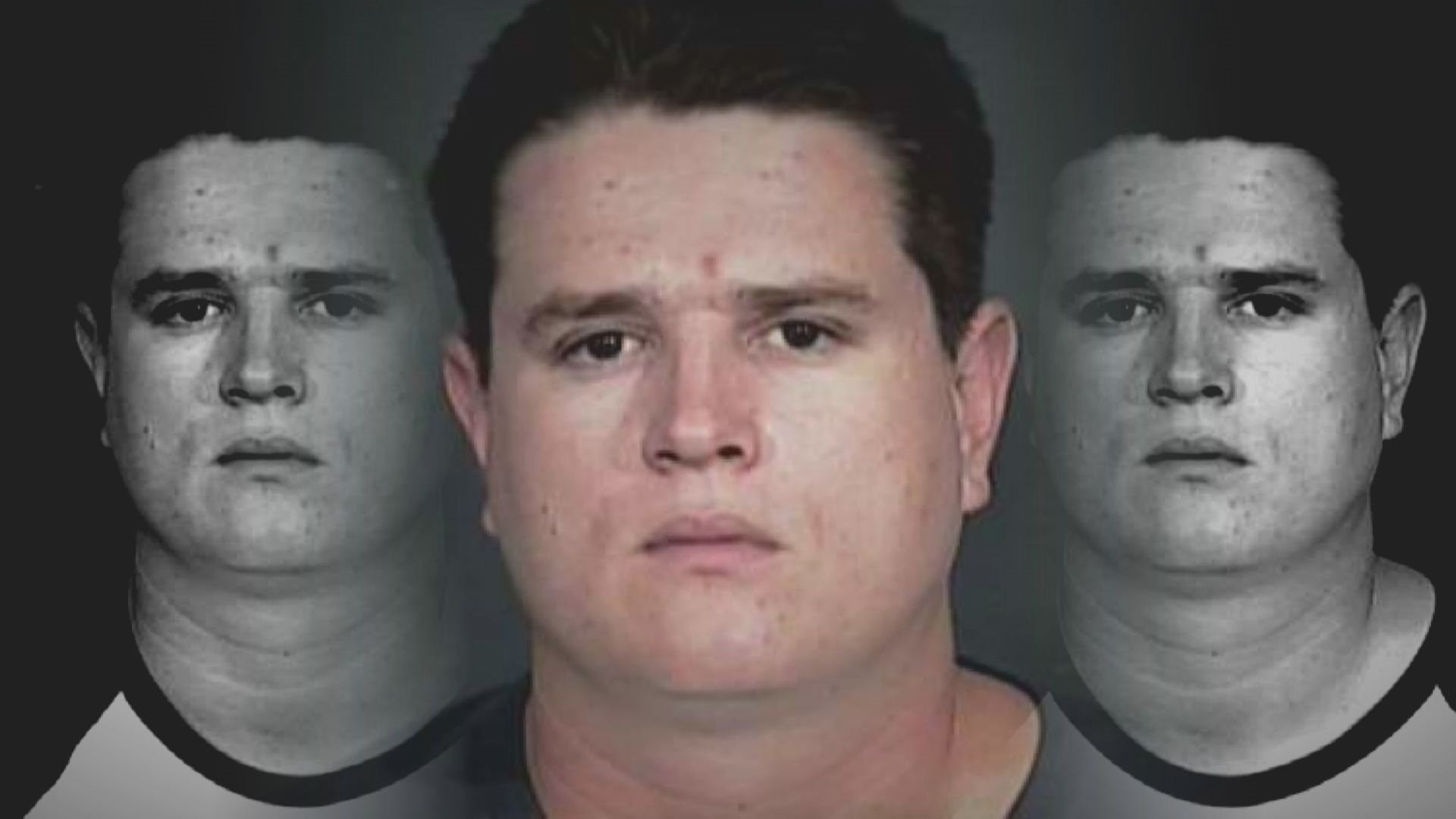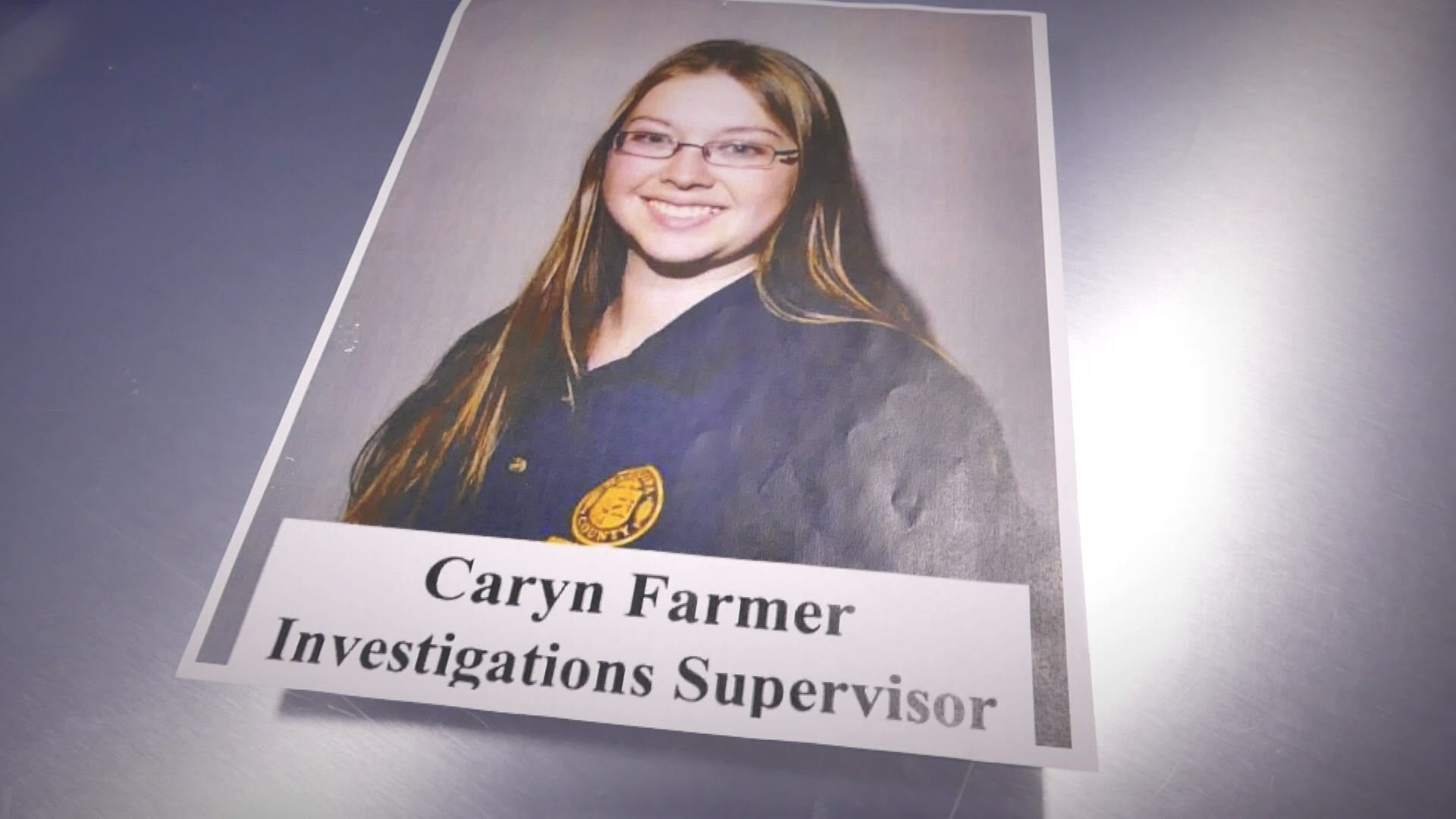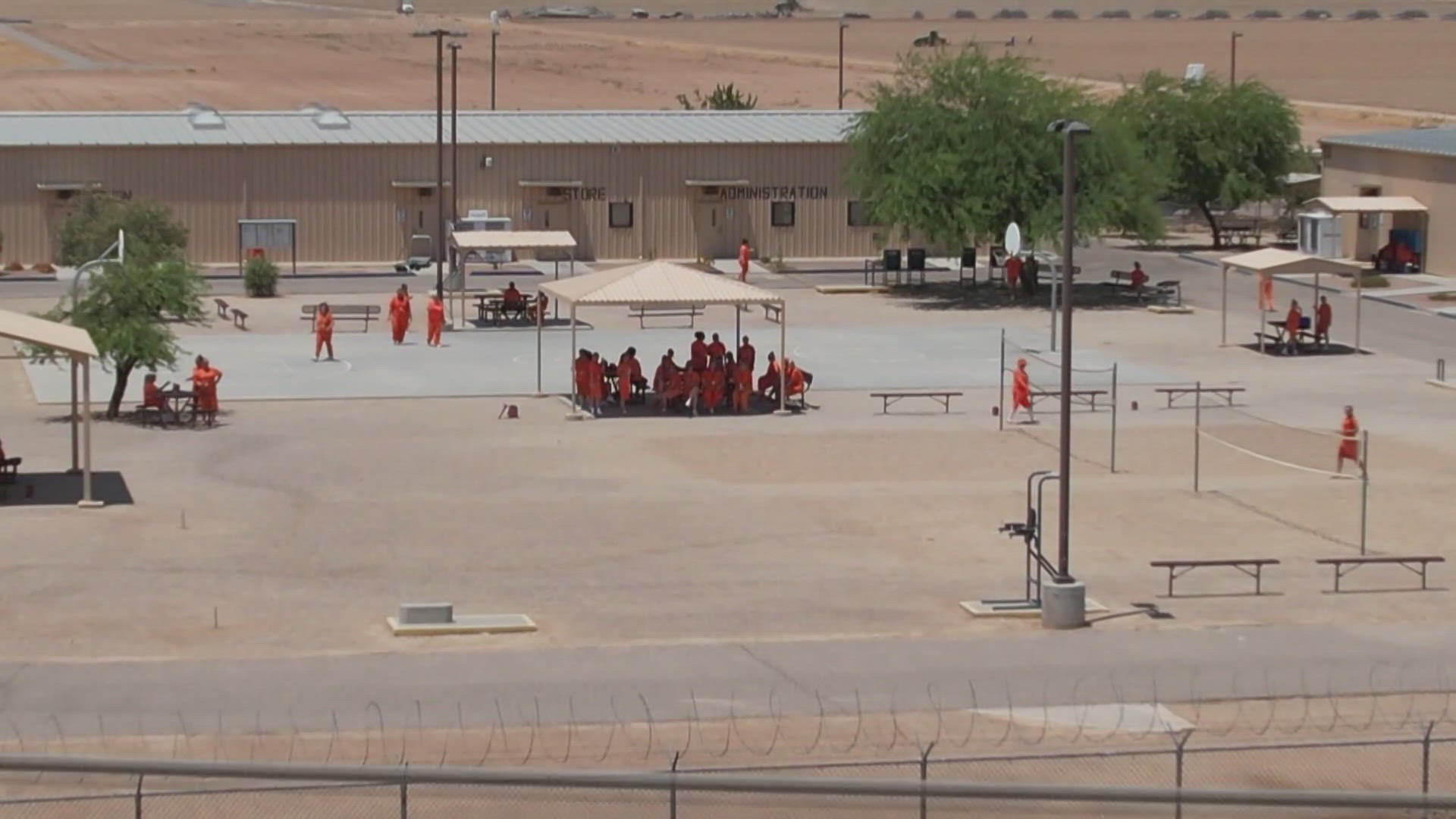At the Maricopa County Medical Examiner's Office, ethics and integrity are paramount as employees ultimately speak for the dead.
It’s a place that provides families answers about how their loved ones died. It’s a starting place for justice for homicide victims and those whose deaths are labeled suspicious. In criminal cases, the medical examiner’s work is used to prosecute and imprison killers.
Employees working for the Medical Examiner’s Office are supposed to make sure evidence isn't tainted.
However, a 12 News investigation has uncovered questionable conduct by employees at the Maricopa County Office of the Medical Examiner. Records show bad behavior by some employees, including concealing a past conviction on a job application, breaking the law and serious policy violations. What's more, the employees held high-level management positions. And a Phoenix police detective's conduct was investigated.
A whistleblower, who is a former death investigator with intimate knowledge of the Medical Examiner’s Office, asked us to protect his identity.
"Anything that is messed up within that department will put everything in chaos."
All of the activity happened under the watch of now former director David Boyer.
"It's mind-numbing to think that somebody in that position of power would allow these things to go on. It's frightening," the whistleblower told 12 News.
So, what happens when employees handling that evidence are potentially tainted themselves?
Secret at the Medical Examiner’s Office
Last November our 12 News investigation exposed Norm Wade's personal demons. He'd been harboring a secret for more than two decades.
The former lab director and chief toxicologist for the Maricopa County Office of the Medical Examiner is a convicted felon. Wade never disclosed his felony conviction on his application in 1999.
In 1995, a California jury convicted Wade of stealing a gun from a crime lab when he worked in at the Ventura County Sheriff's Office in the 1990s.

Director David Boyer admitted to Arizona Department of Public Safety detectives that he learned about Wade's felony conviction during a deposition in 2014.
"That was the first that I, I was shocked," Boyer told detectives.
Boyer said he went to risk management and the legal department to see if there were concerns.
"The answer that I got was no because it occurred back in the 90s and he was hired in ‘99," Boyer told investigators.
Detectives investigated whether Wade made intentional misrepresentations or omissions on his employment application. Wade told DPS detectives that at the time he filled out his application he believed he wasn't required to disclose his prior felony conviction because it had been expunged by a California court, according to court records.
The DPS recommended felony charges against Wade, but the Arizona Attorney General declined to prosecute Wade, noting that he wasn’t fired in 17 years even though some of the people who hired Wade at the Medical Examiner's Office had knowledge of his legal troubles.
The Attorney General’s Office determined that a conviction of Wade was unlikely.
The County kept Wade on the payroll, in a position of trust, until the 12 News investigation last November. Then he was directed to retire immediately.
Maricopa County Communications Director Fields Moseley said he wouldn’t make excuses for the situation with Wade.
"I don't want to make any excuses for Norman Wade and that situation and lying on an application is absolutely grounds for termination," he said.
After the investigation aired, county manager Joy Rich took direct oversight of the Medical Examiner’s Office. Rich has since placed a new administrative director over the agency. Previously at the Maricopa County Sheriff’s Office, Lee Ann Bohn will now head the Medical Examiner’s Office.
Following the 12 News investigation, current and former employees of the medical examiner's office told us we'd only scratched the surface about issues with managers there. We were tipped off to other questionable conduct -- some of it criminal, some of it unethical, and all of it troubling for this agency whose credibility is essential.
"It breaks my heart to see these people that have lost loved ones entrust the medical examiner's office to do an accurate investigation. And when things are going on that will compromise that ability, and maybe give people wrong information, it's disturbing," said the whistleblower who spoke with 12 News.

Jarred Michael Sanders was hired in 2003. For more than a decade, he was the autopsy supervisor and assisted pathologists in removing organs and collecting bodily fluids.
His county personnel records show his job was to make sure he and his staff collect samples correctly before they were sent to the lab.
But Sanders had an underlying problem: getting behind the wheel while intoxicated. Over the course of five and a half years, Sanders was arrested three times for driving under the influence.
Gilbert police arrested Sanders for driving under the influence on June 24, 2006 and he spent 11 days in jail. He was booked for a Chandler DUI again on March 22, 2008 and was released on April 21, 2008.
Sanders was convicted in both cases. MCSO Sergeant Calbert Gillett confirmed Sanders did time in Tent City in 2006 and 2008. Court records show he participated in a work release program.
Sanders would get his third strike on December 4, 2011 when he was pulled over by Gilbert Police for drunk driving on Higley and Baseline roads, according to police records.
His third DUI -- a felony, aggravated DUI -- would have catastrophic consequences for the autopsy supervisor. The Gilbert police report shows Sanders was weaving in between the lanes and followed the car in front of him very closely.
Officer Chad Wright pulled Sanders over and he agreed to a field sobriety test.
Wright noted in his report that Sanders displayed "numerous indications of impairment," including red and watery eyes, a strong odor of alcohol and slurred speech.
Sanders told Wright that he had only one drink, was weaving because he was "playing with his stereo" and that he was just trying to get home.
However, Sanders blew a .23 on a portable breathalyzer, a preliminary breath test, registering a BAC that qualifies as an extreme DUI in the eyes of the law.
Sanders’ predicament worsened when he was transported to the Gilbert Police Station for processing.
There, his blood was drawn and sent to the lab and he was questioned by officers.
Sanders told Wright that he was going to prison and that this was his third DUI. The police report reveals Sanders became "distraught" and told the officer that he was going to lose his job.
"He then stated that he wanted me to keep him in a cell because this was his last day," the report said.
An officer requested the fire department respond due to his suicidal comments. When crews arrived, they evaluated Sanders and took him to the hospital for a suicide evaluation, records show.
On December 16, 2011, lab results showed Sanders blood alcohol content was .249 on the day of his arrest. He was charged with Super Extreme DUI.
However, there is nothing in his personnel file about his arrests or DUI convictions or about he how managed to cover his supervisory shifts during his subsequent arrests.
The only insight in his file is an entry from 2005 -- well before he was arrested for his first DUI -- that says, "During the past year Mike has had to deal with some significant personal problems and this affected his ability to focus his attention on work issues."
Moseley could not offer any explanation as to why the records didn’t include details about his DUI convictions other than to say that unless an employee is disciplined it would not appear in their respective personnel file. The County found no evidence that Sanders was intoxicated on the job, Moseley said.
Sanders resigned from the medical examiner's office on December 1, 2013 prior to pleading guilty to his third strike. His resignation letter indicated that he had accepted a position elsewhere that will better accommodate the needs of his family.
During his sentencing, Sanders’ boss Dr. Mark Fischione, the former Maricopa County Chief Medical Examiner, appeared in court on Sanders’ behalf.
“I had a hand in training him for a number of years,” Fischione said.
He also told the judge he had a job for Sanders after he gets out of prison.
“I just wanted to assure you that he still has a job waiting for him with me in Yavapai County,” said Fischione.
Sanders was sentenced to four months in state prison.
Fischione and Sanders continue to work for the Yavapai County Medical Examiner's Office.
“It should call into question every case that was ever worked on by Norman Wade or by Mike Sanders,” the whistleblower said. "Anything that they came in contact with, in my opinion, is soiled.”

And that's just the tip of the iceberg.
Caryn Farmer is the former supervisor of the medical examiner’s death investigators.
She was hired as a death investigator in 2007 and was promoted in 2014 to supervisor of the death investigators.
She was fired in December for a laundry list of violations including dishonesty, neglect of duty, disappearing from the office for hours, sleeping on the job and calling in to the office during off hours after having consumed alcohol, according to investigative records.
Tax dollars paid her salary. So why was this Maricopa County ME's Office supervisor spending so much time meeting with a police detective instead of doing her job?
When questioned by 12 News, Farmer refused to comment about her relationship with Detective Mike Higgins.
But records show she allowed Higgins into the Medical Examiner’s Officer multiple times. The visits happened while she was working the overnight shift, and she never required him to sign in as a visitor. That’s a violation of security protocol intended to secure evidence at the facility.
Caught being "dishonest," telling her boss she was working when she was emailing Higgins. A forensic search of her emails revealed otherwise, according to investigative records.
The emails show she sent him information about investigations, what she wore, and even set up meetings with him.
In one email with details about a plane crash, Farmer wrote, "Of all days to wear a skirt and bright yellow heels…"
An email that read, “Maybe in about an hour or so?” on the night of July 10, 2016 resulted in a meet-up.
When Farmer wrote confirming Higgins was coming, the detective responded, "Yea, actually was gonna walk over in just a few minutes. Are u allowed to let me in? Lol."
Higgins appears on the medical examiner’s surveillance camera minutes later, coming through the secured garage where Farmer greets him.
Continued emails reveal they met again later that same shift at a Circle K.
"Be there in a few," she wrote.

Farmer also admitted to investigators that she took her “personal friend” Higgins into Chief Investigator Melanie Rouse’s office without authorization, where they were alone, records show.
County investigators concluded it was inappropriate behavior that could have compromised confidential information, according to investigative records.
But Farmer said her firing had nothing to do with her meetings with Higgins.
“Yeah it had nothing to do with anything of that sort,” she said.
When questioned further on the topic, Farmer refused to answer.
County officials concede that there aren’t surveillance cameras in the hallway or office, and therefore they were unable to determine what Farmer and Higgins were doing.
But they did say it was inappropriate for Farmer to take Higgins into the chief investigator’s office and she could have compromised confidential information.
That night in question, Farmer also made 14 personal calls on the county line but investigators were unable to determine if they were to Detective Higgins.
In addition, the county had evidence of Farmer calling in to speak with staff members while "extremely intoxicated," according to investigative records.
The report also found she wasn't doing her job, took an excessive number of breaks, some while on the clock, displayed poor decision making and consistently failed to perform her job as a supervisor.
She was fired from the Medical Examiner’s Office on December 14, 2016.
"I'll let the police department decide if he did anything wrong professionally, she clearly did something wrong from our point of view," Moseley said.
Boyer submitted his resignation during our investigation and officially retired on March 1. Moseley said Boyer's retirement was not related to this investigation.
The Phoenix Police Department was not aware of all the details of Higgins’ visits to the Medical Examiner’s Office until questioned by 12 News.
Sergeant Jonathan Howard said an internal affairs investigation found “no evidence of PPD policy violation regarding Detective Higgins.” In addition, Howard said “no substantiating evidence was found to corroborate the allegations.”
County says Medical Examiner’s Office isn’t compromised
According to county officials, the Medical Examiner’s Office handles around 5,000 autopsies a year and considers over 8,000 cases.
“They take the record keeping, the autopsy itself and the respect for the victims or people who've passed away very, very seriously," Moseley said.
While the 12 News investigation uncovered major issues within the department, Moseley said taxpayers “can rest assured” that issues are going to be dealt with.
"Joy Rich, the county manager, has taken all sorts of steps to make sure this type of behavior isn't tolerated," he said.
When asked if families of the deceased should be concerned about the Medical Examiner’s Office conducting accurate and ethical death investigations, Moseley said “absolutely not.”
"Can we guarantee 100-percent accuracy on everything we do, or can we guarantee that every employee will in a county of 13,000 employees behave exactly as they should,” Moseley said. “Absolutely not."
RELATED: Dr. Dollett White's resignation letter and exit interview
However, 12 News obtained the exit interview of former pathologist Dr. Dollett T. White that seems to support some of the concerns raised by our whistleblower regarding the quality of the work at the Medical Examiner's Office.
White tendered her resignation on February 23 and officially resigned from the Maricopa County Medical Examiner's Office on March 15.
Records show her last day at work was March 14.
She wrote that the factors that contributed to her decision to leave her position were policy changes she did not agree with. When asked how she felt about the quality of communication within the department, she wrote, "Oral and written communication needs to be improved and it could be started by using a dictionary to make sure the appropriate words are being used to communicate thoughts without any room for differential interpretation especially when written in a public forum."
White indicated "It is very unlikely that I would return to work" at the Medical Examiner’s Office.
But perhaps the most telling of all, when she was asked what changes or improvements she would make to the department, White wrote, "I feel the department needs to be reorganized to address efficiency and quality."


